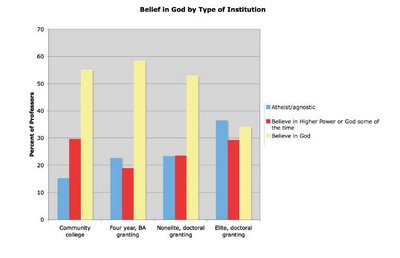I moved the following over from my website. I posted it during the week before Easter:
Daily Entries
04.19.06
"It has been said that, in the New Testament, doctrine is grace, and ethics is gratitude; and something is wrong with any form of Christianity in which, experimentally and practically, this saying is not being verified. Those who suppose that the doctrine of God's grace tends to encourage moral laxity ("final salvation is certain anyway, no matter what we do; therefore our conduct doesn't matter") are simply showing that, in the most literal sense, they do not know what they are talking about. For love awakens love in return..."
- J.I. Packer, from Knowing God
04.18.06 Easter Tuesday
The Collect
"Grant, we beseech thee, Amighty God, that we who celebrate with reverence the Paschal feast, may be found worthy to attain to everlasting joys; through Jesus Christ our Lord. Amen."
For the Epistle
Acts 13:26-41
The Gospel
Luke 24:36-48
04.17.06 Easter Monday
The Collect (from the Book of Common Prayer)
"O God, whose blessed Son did manifest himself to his disciples in the breaking of bread; Open, we pray thee, the eyes of our faith, that we may behold thee in all thy works; through the same thy Son Jesus Christ our Lord. Amen."
For the Epistle
Acts 10:34-43
The Gospel
Luke 24:13-35
04.16.06 Easter Sunday
Christ the Lord Is Risen Today
1. Christ, the Lord, is risen today, Alleluia!
Sons of men and angels say, Alleluia!
Raise your voice and triumphs high, Alleluia!
Sing, ye heavens, and earth, reply, Alleluia!
2. Vain the stone, the watch, the seal, Alleluia!
Christ has burst the gates of hell, Alleluia!
Death in vain forbids His rise, Alleluia!
Christ has opened Paradise, Alleluia!
3. Lives again our glorious King, Alleluia!
Where, O death, is now thy sting? Alleluia!
Once He died, our souls to save, Alleluia!
Where thy victory, O grave? Alleluia!
4. Soar we now where Christ has led, Alleluia!
Following our exalted Head, Alleluia!
Made like Him, like Him we rise, Alleluia!
Ours the cross, the grave, the skies, Alleluia!
5. Hail, the Lord of earth and heaven! Alleluia!
Praise to Thee by both be given, Alleluia!
Thee we greet triumphant now, Alleluia!
Hail, the Resurrection, thou! Alleluia!
Happy Resurrection Day!
And some tunes:
Song o' the day
Good Friday, 4/14
O Come And Mourn
(lyrics)
(album 3)
Resurrection Sunday 4/16
And Can It Be
(lyrics)
(album 1)
Buy Indelible Grace music!
from the song:
"I woke, the dungeon flamed with light; My chains fell off, my heart was free,
I rose, went forth, and followed Thee."
"We were buried therefore with him by baptism into death, in order that, just as Christ was raised from the dead by the glory of the Father, we too might walk in newness of life."
-the letter of Paul to the Romans



 Here's an article from the
Here's an article from the 












